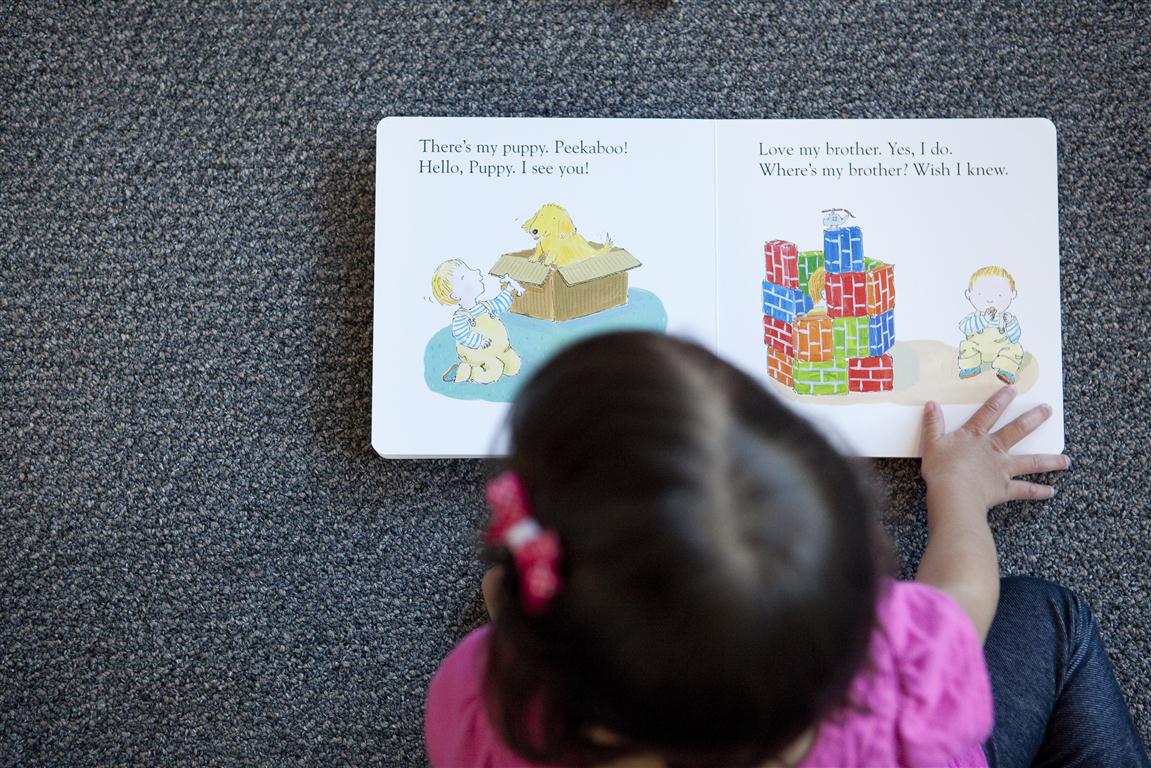Increased literacy development is one of the major benefits of a consistent music program. And that can happen before elementary school!
In fact, an independent research firm found that preschoolers who experienced just 30 minutes a week of Kindermusik demonstrated 32% greater gains in language and literacy skills.
How did researchers test for literacy development? *
Using the Phonological Awareness Literacy Screening (PALS)** pretest and posttest scores, a study conducted by SEG Measurement found that children involved in the Kindermusik program (starting at the same level of reading readiness) made 32% greater progress compared to those who did not participate.
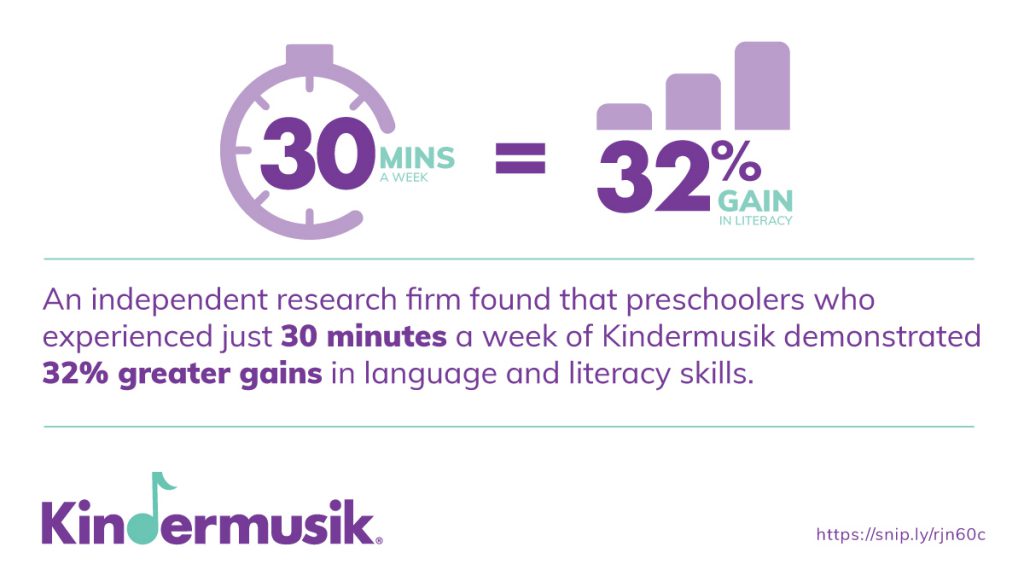
To evaluate the effectiveness of Kindermusik’s curriculum, the firm followed 299 preschool children during the school year. Aside from weekly in-class instruction, families of participating children were given extensive at-home materials with each unit (now included physically or digitally within our kits), to help continue the experience outside of the school day.
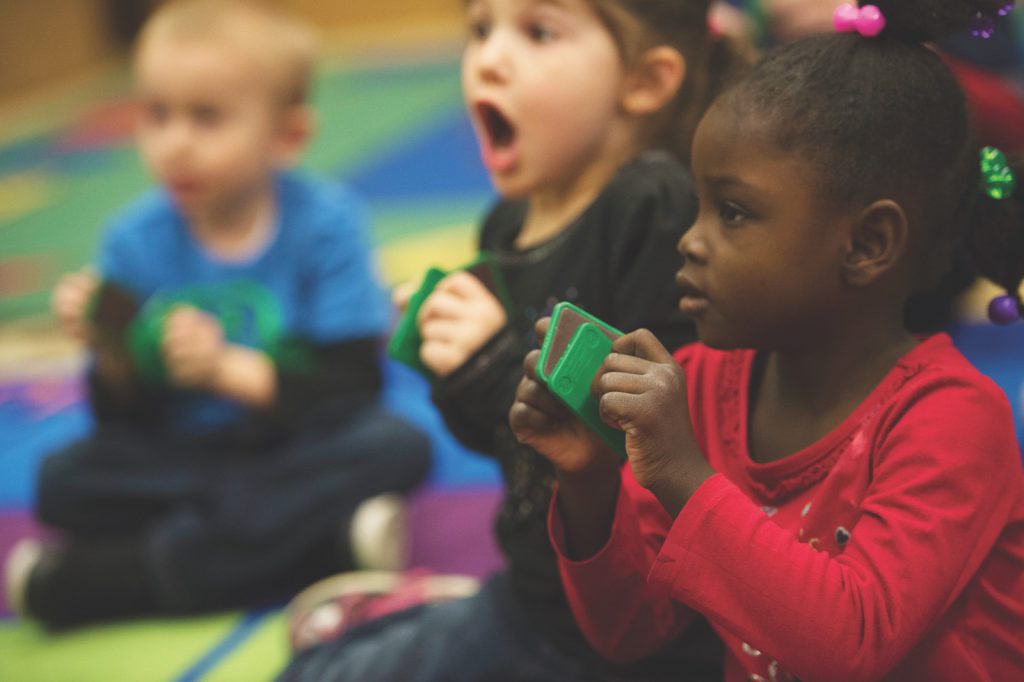
Why does music increase literacy development?
Music and literacy are processed the same way…through sound!
That’s why, at Kindermusik, we introduce elements like steady beat to babies and build on it from there. And like rhythmic patterns, early childhood songs use simple language patterns, vocabulary, and storytelling. All of these elements contribute to a strong foundation for early literacy skills.
Music builds memory.
When instruction involves singing, dancing, and instrument play, children are forced to listen carefully and pay attention. That type of concentration builds memory, and memory is essential to nurturing reading readiness.
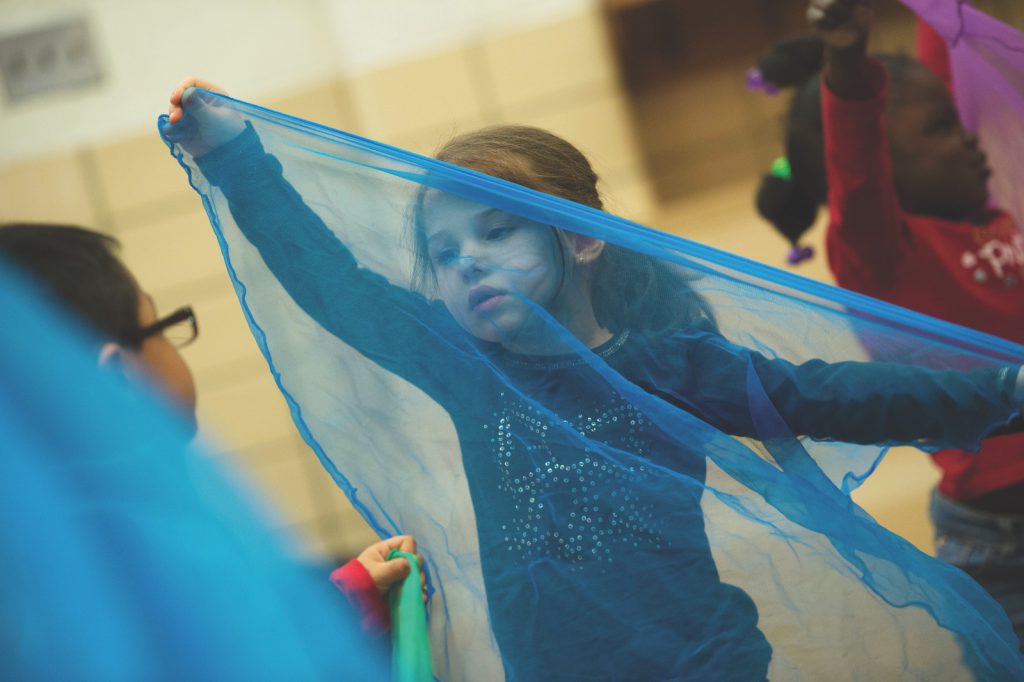
Music sparks imagination.
Did you know that imagination is considered an advanced cognitive ability? When this concept is introduced at an early age, it naturally boosts other areas of development, including literacy.
At Kindermusik, we encourage imagination through song, sound exploration, and movement, but children also experience that opportunity through our read-aloud components.
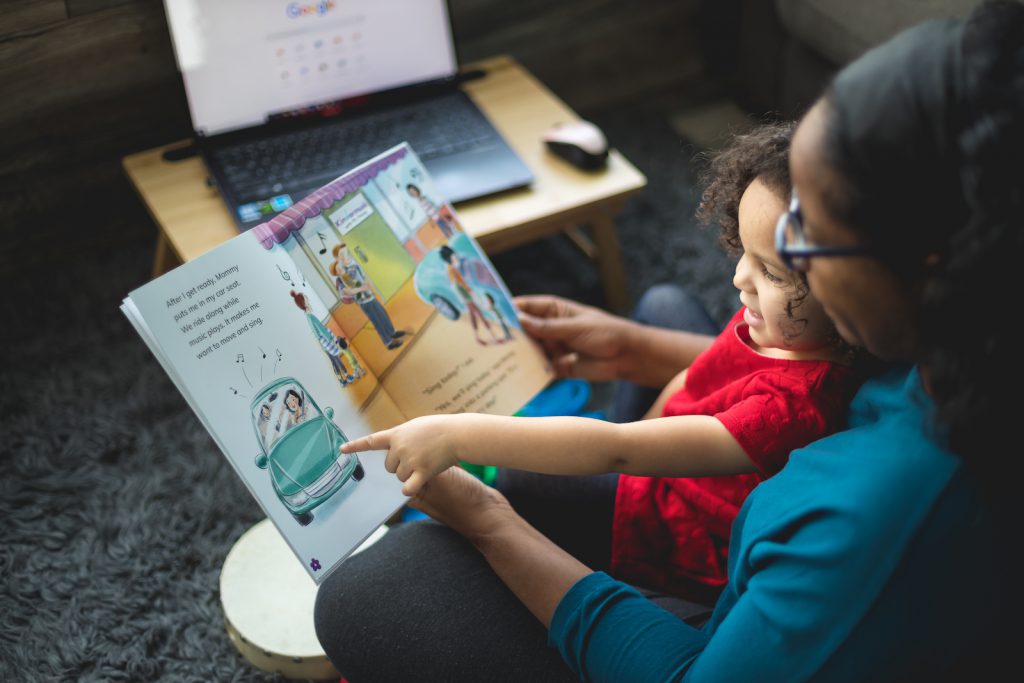
In fact, the American Academy of Pediatrics cites that reading aloud “directly affects language development, a major factor in school readiness, during the critical period of early brain development.”
Our units are accompanied by stories that take little minds to different places and encourage them to envision, recreate, and even empathize with the characters. The combination of bolstered imagination through music and read-aloud is a double recipe for success!
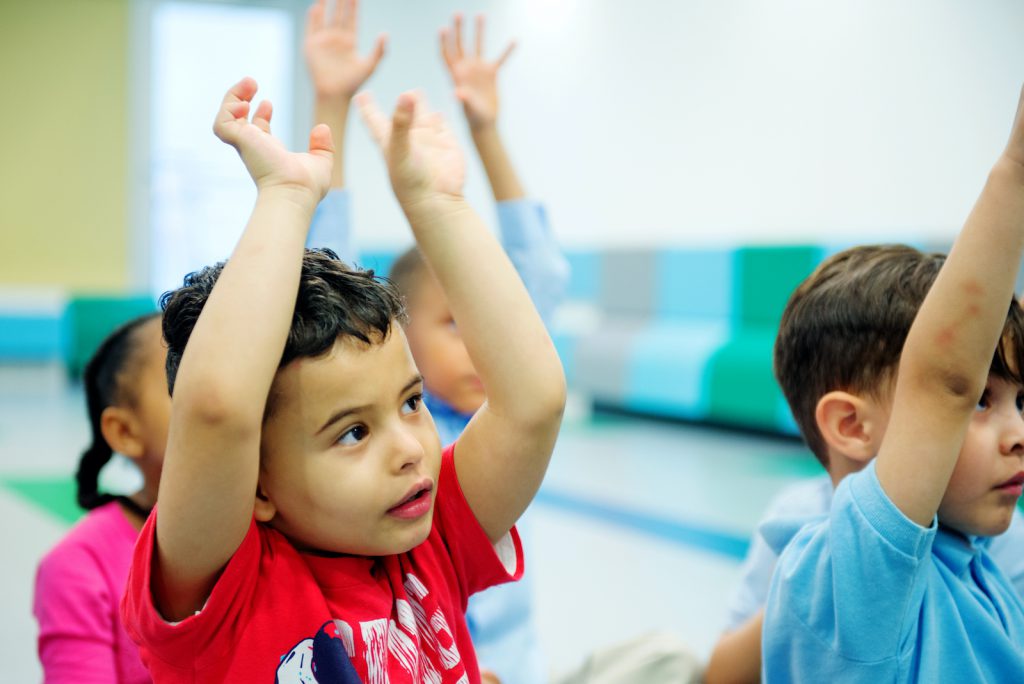
Why do children need a “music program”?
We know that children thrive on routines and that they actually foster positive overall behavior and performance, whether at home or in the classroom. That’s exactly what a music program, like a weekly Kindermusik class, does!
When kids can anticipate next steps and are genuinely excited about participation they will naturally build on those steady, positive experiences. Consistency in learning methods is key, and with just a little effort, you’ll see them expand all areas of development (like literacy!) in no time.
Curious about Kindermusik in Schools? We offer programs for homeschool pods, early education centers, public schools, and more!
You can also find an in-person or virtual studio class near you!
* This study was conducted by SEG Measurement, supported by a grant from Kindermusik International. SEG is an independent research firm, providing research services to educational publishers, technology providers, and government agencies, since 1979.
** About PALS: The PALS-(Phonological Awareness Literacy Screening (PALS) Pre-K Assessment is a scientifically-based phonological awareness and literacy screening that measures preschoolers’ developing knowledge of important literacy fundamentals and offers guidance to teachers for tailoring instruction to children’s specific needs. The assessment reflects skills that are predictive of future reading success and measures name writing ability, upper-case and lower-case alphabet recognition, letter sound, and beginning sound production, print, and word awareness, rhyme awareness, and nursery rhyme awareness.

